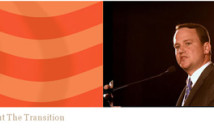Q: My painting style has recently changed and I have grown tremendously as an artist. My paintings used to be smaller plein-air landscapes. I have taken what I've learned and applied that to creating larger and more expressive semi-abstract landscapes.
I have sold, shown and received awards for my plein-air work but consider that phase of my painting experience over. Do I now need to start over as an artist in promoting my new and more mature work? Do my past sales and shows count for anything? How much of it is about the quality of the work?
A: It is normal for an artist to progress and change their work. But, don’t expect your current representation to want to deal the work. It may be different enough that your current fan base isn’t interested in the newer work. So, you may have to find new ways to get your work into the market.
By the way, It is very common for artists to have several “bodies” of work at once. These artists should spread the different styles to different galleries so that they can maximize exposure without having the galleries compete. In other words, if you are painting vertical stripes, sell that work at the “Vertical Stripe” gallery, and sell the figurative work out of the “Figurative” gallery. The dealers shouldn’t mind that you are working with another gallery as long as the work is different. Just make sure you can make the distinction with each of your dealers. Are you sure you want to totally abandon your already successful pursuits? Maybe you should work on both bodies until you can develop enough of a following with the new work to leave the old one behind.
As for pricing, although you have achieved a certain price with the older work, there is no telling what people will spend on the new work, especially since from your description it seems so different than previously sold work. This exploration will begin again for you until you find a comfortable selling price. Seems like you’ve done this before, so I’m sure you’ll figure things out.
Q: I have been approached by a party wanting to represent my work.
The deal is that they pay me a forward of 3500 GB pounds per month but they expect to have a global license with myself taking 20% of the sale price of the original and 15% of each reproduction [litho print].
To have the upfront working capitol is great but is the % too low? They will also cover all costs of exhibitions globally and marketing.
Can you please advise?
A: This is a very unique situation and seems to be more common in Europe than in the United States. This scenario sounds familiar... Basically, you will be an employee. You will receive a salary, and a bonus commission should your work do well for the company hiring you. This is obviously very tempting because you will now have steady pay and an opportunity to work on your art, probably without needing another job for support. There are many details missing for me to give you an honest answer, though. For example, how long of a contract will you be signing with the company? Maybe if it’s short term, and you need money, this could be worth exploring. Either way, there should be a time period stated in the agreement. Who will own the license of your artwork while under contract? It sounds like this company is paying you a flat fee, and because of it they will expect to own the rights to your artwork. I would strongly advise against this if you like having the freedom to do whatever you want with the work.
I don’t think this is a matter of your percentage being low, rather an issue of control. If you are looking for an income, then this would be a steady way to make a living, and knowing how difficult it is to make money as an artist, I can appreciate your temptation to take the offer. My advice to you is to make sure the agreement is totally clear and understood. If you are uncomfortable in anyway with the terms, I would recommend finding a local arts council for a lawyer (in the United States, most major cities have free services supported by the government but I’m not sure about your location) to have them read over the contract. Also, consider adding an exit clause. In other words, if the company cannot promise you a certain number of exhibitions in the future, you should be able to break the agreement to persue your career. Also, ask for the contact information of other artists and make some calls. Protect yourself and be careful.
There are some fine artists that want to create artwork for galleries and want to have public exhibitions and gain public noteriety. These artists are in themselves a small, private business promoting and marketing their own work, hopefully with the help of a dealer. There are some fine artists that work for larger corporations, like Hallmark, creating artwork for things like greeting cards and advertising. Either path is perfectly acceptable, you just have to figure out what’s right for you.
Please keep me posted with your decision and we’ll keep the Big RED & Shiny audience informed. Good luck.
Q: I was recently contacted by a gallery that wants to show my work in a nearby city. They found my work on the website of my gallery that shows me locally. When I informed my local dealer of this, he insisted that his gallery receive a portion of sales should I do an exhibition with the new gallery. Is this normal? I don’t want to turn the new gallery off but enjoy showing with my current space.
A: First of all, this new gallery should have known to contact your main gallery first, instead of you. It is likely that this was done because they are trying to avoid owing your initial gallery money from sales. This share in commission is totally normal and perfectly reasonable. Often a new gallery representing your work will pay on average 10-15% of all sales to the gallery that introduced you (or is considered your main dealer).
My advice to all artists, once they have representation, is to use that dealer for all points of contact. Hell, you are giving half of your sales to the dealer, so you should make them work for it. If someone contacts you for any reason, thank them for touching base, but refer them to your dealer for all sales and exhibition questions. Having another point of exposure is good for everyone, so the dealers will do what they can to make it happen. Trust your dealer to get things done and if you can’t, you’re probably working with the wrong person.
Image found here.
- Ivan Kramskoy, Portrait of Pavel Tretyakov, the Art Collector, Founder of the Gallery. 1876. Oil on canvas. The Tretyakov Gallery, Moscow, Russia.





